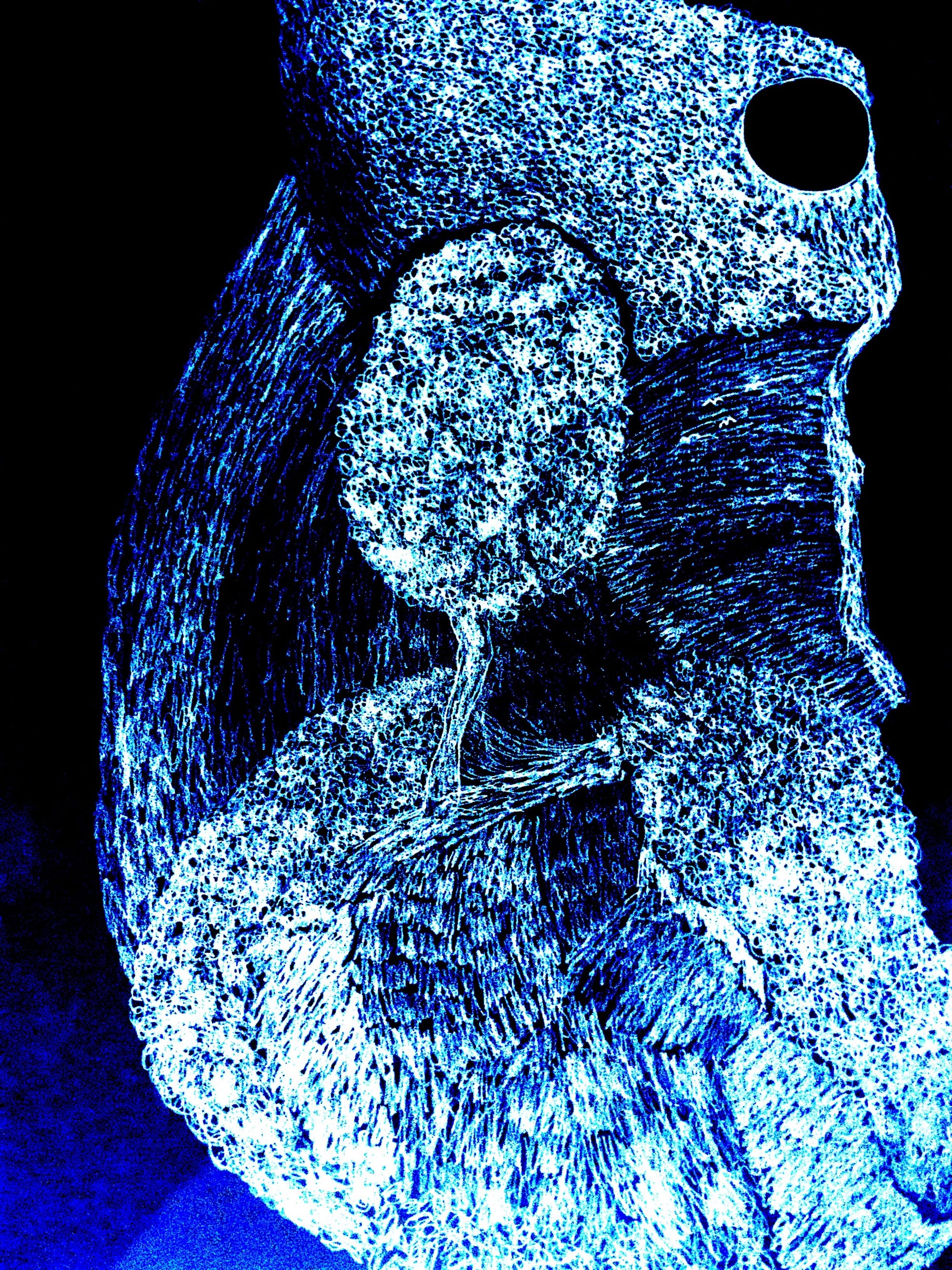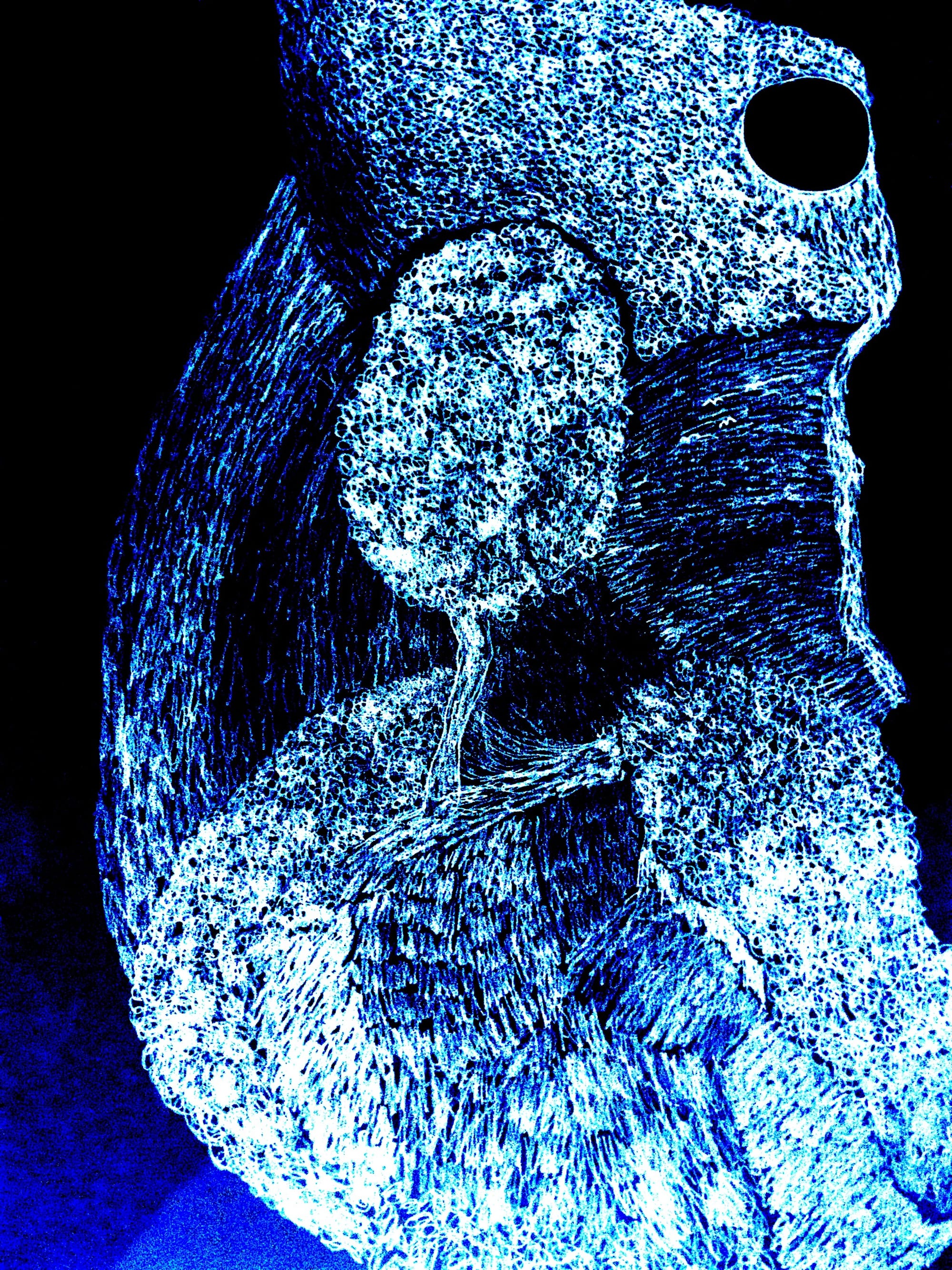The Ecstatic Silence: 48

He met the obscure author M Ageyev. He was an octogenerian by this time. He had left Istambul years before. He had settled finally in Nottingham. He worked in a kitchen of one of the nearby run-down afflicted hotels. Johnny had been sitting on the steps of the shabby house where he rented a single room. It was early evening and summertime. The time had its marks of impermanence. Johnny was alone and difficult to translate. The old man stopped in front of him. His look was like attachment and aversion combined. Johnny raised his can of beer. M Ageyev nodded. Johnny offered him a can. The author reflected on the times when he’d been in despair and deep anguish. No doubt he talked a little about causes. He put his survival down to mental attitude. Right view, right intention, right speech, right action, right livelihood, right effort, right mindfulness, right concentration. That was what he proposed.
‘Why not suicide? Stops all the pain,’ said Johnny.
M Ageyev froze as if at some seductive delicacy .
‘You got that right boy, the suicide argument is a knock out for anyone who thinks ethics is just about alleviating bad stuff.’
Johnny felt a deep tranquility, equanimity, inner peace. It was a sort of wistfulness.
‘But you know, some times are better than annihilation.’
‘Don’t get attached to it that’s all,’ he added. His voice was a kind of Russian sadness.
‘Live unphilosophically. Play rough, put yourself at risk. Feel the weight and duty of a hundred experiments and temptations.’
His eyes were infections to the bright light. He talked about his attitude to sex.
‘I never had interest in intercourse legitimized by cash or verbal agreements,’ he added.
‘Payment in advance puts her under an obligation. It’ll happen under a duress. She’ll be a bored onlooker. Sex should be victory of myself, my body, my self, something mine and mine alone. Her arousal should be a mirror of mine, not a purse string.’
He stopped and glanced down as if into a void. ‘Hers or his…?’ he added. Johnny grinned like a magnifying glass.
The next evening they planned a further meeting. M Ageyev told Johnny he had written a classic novel. He had witnessed the Russian Revolution as a blissful savagery. He talked about the inflamed senses and the intensity of life under starry skies. He had fled to Odessa, Stambul, Smyrna, Kiev and then Paris and Prague when the Nazis arrived in spring ‘39. Refugees avoided the police archives. He watched international finance pull strings and puppets dance. He’d been Greek, Muslim, Jew, Russian, Turkish and Bulgarian. Drug dealer, arms dealer, unscrupulous Eurasian businessman and terrorist, proprietor for a while of sleazy bars and sleazy women, he’d once lived in a villa on the Bosphorus with a handsome Turkish woman with a habit of striking her servants with terrific force. But his life had roared and vaulted out until it had come to a dramatic standstill. A narrow frontal lobe, a long beak of a nose and thin silk lips, he stooped as if tired of all this like a stout girl in a bathing costume. His performance fascinated Johnny, who to be frank had never heard of his novel.
‘I believe my mother was Romanian. After leaving Russia I think I spent time in Izmar. I witnessed Mustafa Kemal Pasha and the Turkish Nationalists attacking Smyrna . Terrible things. Butchery. The Greeks in retreat murdered everyone from Alahehr to Smyrna. By the time the Turks arrived in Smyrna they were set for taking their revenge. They murdered everyone in the non-Turkish quarters. Wooden churches were soaked in benzine and torched with women and children inside. By the fifteenth of September 1922 120,000 people had been killed. I don’t forget that. I think inner peace is incompatible with knowing this. I believe it is impossible when love is added.’
Johnny saw an inviolate decisiveness. He heard the damned emotions boiling the old man’s crystalline swing. The evening air was swung off its hinge and propelled itself to the rushing dark.
‘Suffering is caused by love. Love of the lover leaving. Love of the lover dying. It demands jealousy, rejection more than the thriving of the relationship itself. To be possessed and to possess is what love names. It is damnation in a higher pitch. The highest human ideal is soaked in blood and despair. It tears your heart to pieces. A lost love should be miserable forever. And you should go mad.’
He could not possibly be clearer.
‘ One should cling to every love. When someone objects and tells me that all things pass, I want to tear off their heads. We are doomed to consummate the curse of this strange and terrible aspect of the human soul. To hell with inner peace. To hell with peace of mind.’
His insomniac eyes peered into a place Johnny couldn’t translate. His body was a shriveled up, piteously small thing. What if someone came along and listened to this? He was mortified. The daylight shimmered a strange green light he’d read about in some book and it glowed with a destructive sweetness like a flickering poison throughout his quivering organism.
M Ageyev promised to return the following evening but for some reason he never did. Maybe he died. He was ancient and looked physically frail. Johnny disappeared from the stoop himself soon afterwards. The true identity of the old man remains a mystery. Johnny registered him as a deep unease. Distractions don’t dissipate this. Disquiet is transitive. It knocks on down the line. That bell tolling is tolling for us all. Johnny ran hither and thither reading moral psychologies from metaphysical pictures. He sat around reading Sartre. Talked with a few Buddhists. His primary question was: ‘How do I get rid of my attachment to my double?’
But then he changed his mind again and thought about what the lost novelist M Ageyev had said. Life was a kind of exhumation. He kept significance as a postcript. Everything struck him as a specified point on the way to the cemetery.
‘Are you an addict?’ Johnny had asked.
‘It is terrible. Terrible. You can spend years killing yourself with it. It’s a project where success is a complaint from either angle.’ He laughed and Johnny remembered how the sound got on his nerves.
He always got back to this moment. It was part of everything. Certain memories were pure anguish. Others took in their own washing. Others were like long ropes whose strands go only so far. We come and go. We’re not always who we were, are , will be. Johnny like everyone else needs his illusions. But there’s always the cost of mistaking the world he’s in. His secundum quid is obscure to him. Johnny was the kind of person who existed in another world.
Does everything exist? It’s one thing with parts. It is symmetrically related to all other objects. Its prime object has contradictory abundant properties. It has all the properties of any part. It is as trivial as any object which has all properties. This primary object of everything is identical to all parts of everything. Was it also part of nothing? Out of nothing the Abrahamic God created the world. Out of the noun phrase nothing. Absolutely nothing. Nothing thus is an object. It is the fundamental object of anxiety.
Does nothing exist? How could it? Causal interactions with nothing are impossible. But it is something because it’s an object. But it’s the absence of all things too. Nothing is nothing. Everything is the adding up of the parts of the universal set. Nothing is the adding up of the parts of the empty set. There is nothing in the empty set. Nothing at all. Not even absence. But the absence of absence isn’t presence, or else that would be something. And there is nothing. It is, like everything, a contradiction.
Anxiety is the mood of the absence of all presences. It is the mood of no thing. Anxiety sees that nothing has no parts – to have parts would be to contradict the state of being the absence of every thing. Anxiety fuses no things. Nothing is where there is absolute absence. There’s nothing to coordinate. No disparate collection needing a helping hand. Nothing isn’t a part of anything and has no parts. Anxiety shows an empty fusion that is a part of everything.
In this state Johnny is counting. How many things are there really? How many of these damned conversations, thoughts, blessings, terrors, angels, monsters, lower parts, upper, sticks, stones, faces, likenesses, unlikenesses, multitudes, oneness, left sides, right sides, up, down, kettle, egg, book, candle, swamp, field, whale, mouse, both, neither, some, all, every, none? Johnny takes his anxiety to bed. He lies in the dark room with the window wide and curtains flutter like the inside of scared moths.
‘I am like my mother and unlike Reegan. I have a multitude of body parts. I am one bundle.’
That was calming.
But anxiety wakes up:
‘But I am an object of a certain kind and a multitude of the same kind. I am absolutely at rest and absolutely in motion.’
